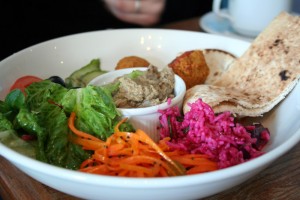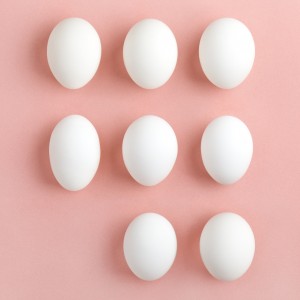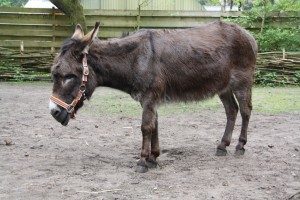Nieuw Worldlog Marianne Thieme
Na een weekje reces weer volop aan de bak. Deze week Kamervragen gesteld over ezels op Sint Eustatius, een Nederlandse gemeente in het Caribisch gebied. Er worden tientallen voorheen loslopende ezels in een omheind gebied onder erbarmelijke omstandigheden gehouden. Ik heb dan ook de Nederlandse regering gevraagd maatregelen te treffen om te voorkomen dat er nog meer dieren slachtoffer worden.
Afgelopen donderdag heb ik ‘Mijn idee voor Nederland’ gepresenteerd. Ik ben één van de Nederlanders die in een reeks van debatavonden mocht komen vertellen hoe ik de toekomst van Nederland zie. Eén van de onderwerpen deze avond was dat als we allemaal vleesvervangers gaan eten deze goedkoper worden dan vlees nu is. En voor vleesvervangers is vijf tot acht keer minder soja nodig. Zo kunnen we de wereld blijven voeden zonder de aarde uit te putten. Goed plan lijkt mij!
Dit filmpje is opnieuw een schrijnend voorbeeld van de manier hoe met dieren om wordt gegaan in de intensieve veehouderij. Vegetariër worden na het zien van dit filmpje klinkt dan als een zeer aardige gedachte 🙂
Deze week stelden we ook vragen over een Amsterdams steakhouse dat al 63 jaar paardenbiefstuk voor koeienbiefstuk verkoopt. In Nederland is het via de Warenwet geregeld dat het niet is toegestaan vlees als biefstuk te verkopen wanneer het niet afkomstig is van rund. Erg vreemd dat de controlerende instantie (de nVWA) in Nederland niet in beweging te krijgen is om hier wat aan te doen. Ik wil dan ook dat de nVWA een proces-verbaal opmaakt wegens misleiding en overtreding van de Warenwet.
Ook Kamervragen gesteld over andere schandalen rond de herkomst van voedsel. Ik heb onder andere aangekaart dat in Duitsland op grote schaal gefraudeerd wordt met de herkomst van eieren, waardoor consumenten die dachten biologische eieren te kopen in werkelijkheid gangbare eieren kochten. Ook heeft de British Lion Egg Processors, de organisatie achter het Britse keuringsmerk voor eieren geconstateerd dat er sinds begin vorig jaar meer dan 12,5 miljard eieren op de markt zijn gekomen die afkomstig waren uit legbatterijen die sinds 1 januari 2012 verboden zijn. Ik wil van de staatssecretaris van Economische Zaken weten wat zij gaat doen om Nederlandse consumenten zekerheid te verschaffen over de herkomst van hun dierlijke producten. Ook moet de opsporings- en handhavingscapaciteit drastisch uitgebreid worden. Helemaal nu het ene voedselschandaal het andere opvolgt.

De consument in Nederland en in Europa wordt zeer slecht geïnformeerd over de herkomst van ons voedsel en over de dier(on)vriendelijke en mens(on)vriendelijke productiewijze daarvan. Wij vinden dan ook dat de overheid hier door middel van een goed etiketteringssysteem helderheid over moet verschaffen. In zo’n etiketteringssysteem moet duidelijk zichtbaar zijn uit welk land een dierlijk product afkomstig is en hoe het is geproduceerd: volgens welke (dierenwelzijns) normen en milieunormen en onder welke sociale omstandigheden!
Aankomende zondag is onze tweede Boomplantdag. We zijn eind 2011 begonnen met onze Groeiend Verzet campagne, waarin we mensen aanbieden een boom te kopen en deze zelf te planten als protest tegen de bezuinigingen op natuur in Nederland. De eerste Boomplantdag was eind 2011 en een daverend succes, we hebben toen 5.000 bomen geplant. Aankomende zondag hopen we opnieuw 5.000 bomen te kunnen planten!

Leuk nieuwtje: Begin april komt onze documentaire Meat the Truth uit in Frankrijk als film en als boek.
Goede week! Marianne
We’re right back at it after a week’s recess. This week, I asked parliamentary questions about donkeys on Sint Eustatius, a Dutch municipality in the Caribbean. They are keeping dozens of donkeys that used to roam free in a fenced-off area, under wretched conditions. I also asked the Dutch government to take measures to stop further animal victimisation.

Last Thursday, I presented “My Idea for the Netherlands”. I am one of a few lucky Dutch citizens who were picked to present their idea of what future the Netherlands faces in a series of debates. One of the evening’s themes was ‘If we all started eating meat substitutes, they would become cheaper than meat is now’. Creating meat substitutes requires five times less soy than meat. This means we could feed the world without depleting the earth. That sounds like a good idea to me!
This clip is another horrifying example of how animals are mistreated in intensive cattle farming practices. Perhaps after viewing the film, you might like to contemplate turning vegetarian? 🙂
This week we also asked questions about a steakhouse in Amsterdam that has been selling horse meat as beef steak for 63 years. The Dutch Commodities Act means that no one can sell meat as ‘steak’ if it doesn’t come from a cow. How strange that the controlling body (the nVWA) hasn’t done anything about it. I want the nVWA to issue them a ticket for deception and for violating the Commodities act..
I also asked parliamentary questions about other food source scandals. I raised such issues as German consumers being defrauded on a large scale when it comes to eggs. Consumers believe they are buying organic eggs whereas they are really buying ordinary eggs. The British Lion Egg Processors, the organisation behind the British egg quality mark, has also established that since the start of last year, more than 12.5 billion battery hen eggs have been sold, despite them being banned as 1 January 2012. I want the State Secretary of Economic Affairs to tell me what she’s going to do to put Dutch consumers’ minds at rest when it comes to the origin of their animal products. We also need to drastically expand our investigative and enforcement capacities – especially now that we’re having one food scandal after the other.

The Dutch and European consumer is very badly informed on where there food comes from and the negative effects this can have on both people and animals. We believe that the government needs to use a proper sticker system to create clarity in this regard. This sticker system needs to clearly show which country an animal product comes from and how it was produced: it should also include under which animal welfare and environmental standards it was produced and under which social circumstances!
Coming Sunday is our second Tree Planting Day. We started our Green Resistance campaign at the end of 2011. We suggested that people buy a tree and plant it as a protest against nature cut-backs in the Netherlands. The inaugural Tree Planting Day was at the end of 2011 and it was a raging success – we planted 5,000 new trees! This Sunday we hope to plant another 5,000!

A neat little newsflash: Our documentary Meat the Truth will be released in France as a film and a book at the start of April.
Have a great week! Marianne